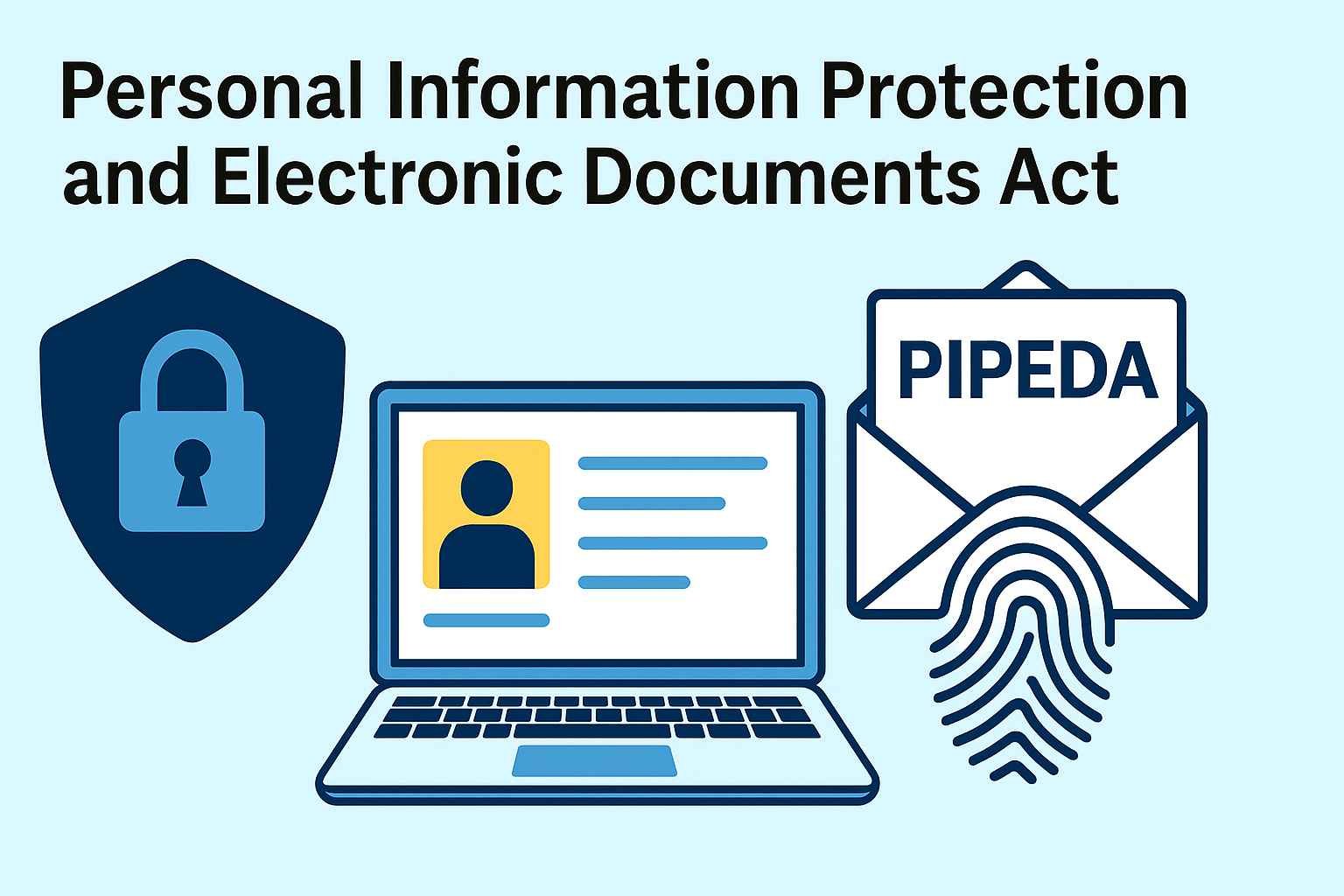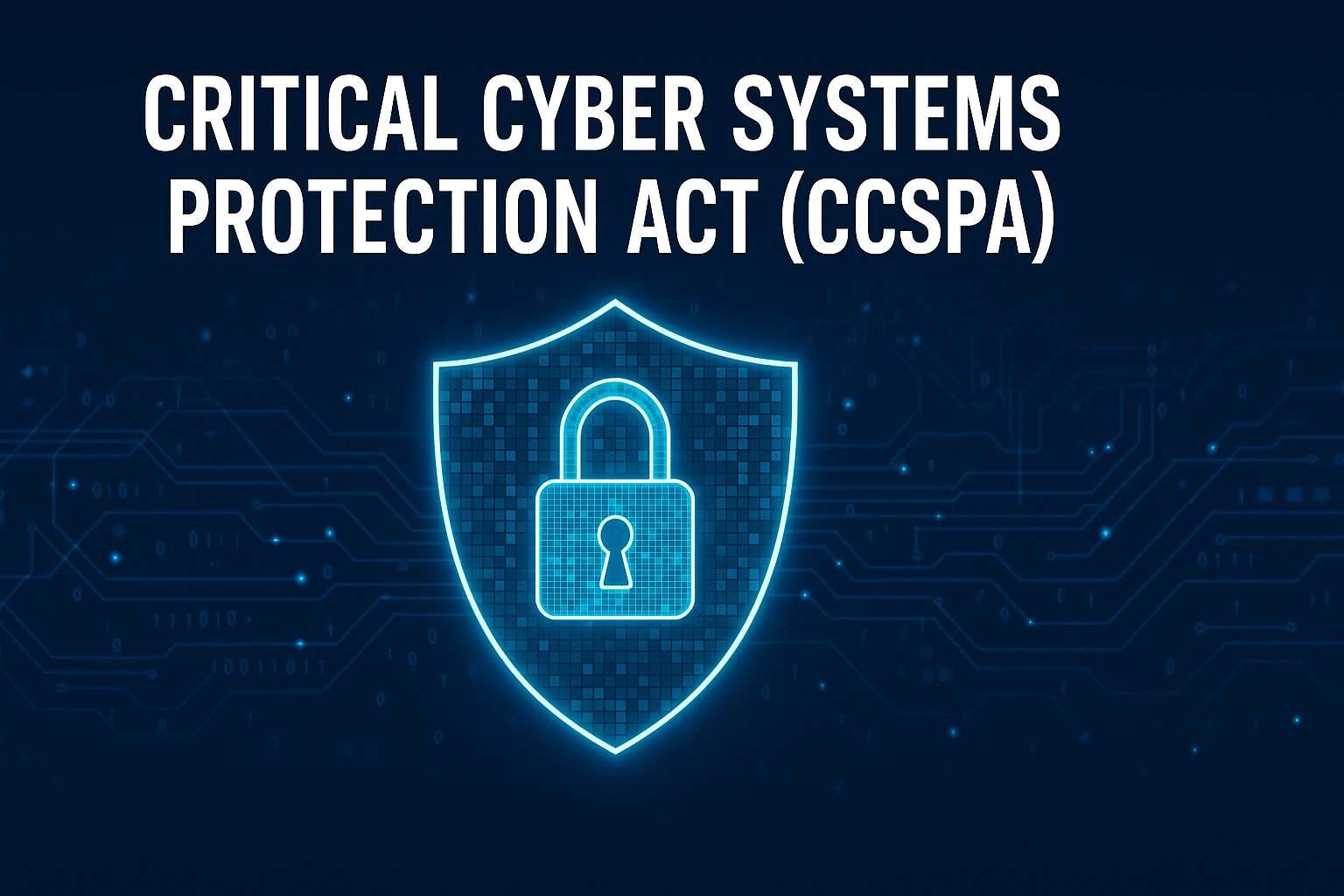On this page you will read detailed information about Personal Information Protection and Electronic Documents Act.
What PIPEDA is—and where it applies
PIPEDA is Canada’s federal private-sector privacy law. It governs how organizations collect, use, and disclose personal information in the course of commercial activity—and gives people rights to access and challenge the accuracy of their data.
PIPEDA applies across Canada except in provinces with “substantially similar” private-sector laws, where those provincial laws apply to purely intra-provincial activities. Today, the big three are Quebec, British Columbia, and Alberta. If your operations cross borders (inter-provincial or international), PIPEDA still catches those activities even in those provinces.
The law is administered by the Office of the Privacy Commissioner of Canada (OPC), which investigates complaints, issues guidance, and can take matters to Federal Court.
The core principles you must implement
PIPEDA is built on 10 familiar fair-information principles. In practice, here’s what they mean for teams:
- Accountability – Name a privacy lead, adopt policies, train staff, and oversee vendors.
- Identifying purposes – Say why you’re collecting data before or at the time of collection.
- Consent – Obtain meaningful consent, tailored to sensitivity and context; let people withdraw.
- Limiting collection – Collect only what you need for stated purposes.
- Limiting use, disclosure, retention – Use data for those purposes, keep it only as long as needed.
- Accuracy – Keep information as accurate and up to date as necessary.
- Safeguards – Protect data via administrative, technical, and physical controls.
- Openness – Publish clear privacy notices.
- Individual access – Provide access/corrections on request (with narrow exceptions).
- Challenging compliance – Provide a simple complaint path to your privacy office and the OPC.
Mandatory breach reporting (the RROSH test)
Since 2018, PIPEDA requires organizations to report certain breaches to the OPC, notify affected individuals, and keep a breach record for 24 months. The trigger is a “real risk of significant harm” (RROSH). If your risk assessment crosses that threshold, you must notify as soon as feasible and include enough detail to help people protect themselves.
In 2025 the OPC refreshed breach-response resources and reminders about RROSH thresholds—use them to pressure-test your incident playbooks.
Tip: keep a breach log for every security incident—even those below RROSH—because PIPEDA requires records of all breaches of security safeguards.
Cross-border processing and vendors
OPC guidance continues to treat a transfer to a processor (e.g., a cloud provider) as a use of personal information, not a disclosure—meaning you generally do not need new consent solely because processing occurs outside Canada. You do need to be transparent and ensure contractual and technical safeguards for the processor.
Practically, that means: conduct vendor risk assessments, bind processors to PIPEDA-aligned contracts, and explain cross-border risks in your privacy notice.
Biometrics, AI, and emerging tech
With biometrics and AI increasingly common, the OPC published 2025 guidance for private-sector organizations handling biometric data under PIPEDA (e.g., facial recognition, voiceprints, fingerprints). Expect emphasis on necessity, proportionality, safeguards, minimization, and heightened consent and transparency. If you use biometrics for identity or fraud prevention, align with that guidance now.
More broadly, the OPC continues to issue decisions and findings that show how PIPEDA applies to search indexing, online disclosures, and algorithmic use of personal data. It’s smart to track new case summaries to see how enforcement trends evolve.
What did (and didn’t) change in 2025
A major federal privacy revamp—Bill C-27 (which would have replaced PIPEDA with the Consumer Privacy Protection Act)—died when Parliament was prorogued in January 2025. Translation: PIPEDA remains Canada’s private-sector privacy law for now, while Ottawa considers the next iteration. Expect many C-27 ideas (automated decision rights, larger fines, new tribunal) to reappear in future proposals.
Meanwhile, the OPC has been active on international cooperation and cross-border enforcement under PIPEDA’s information-sharing provisions—relevant if you operate across jurisdictions.
In the previous post, we had shared information about Fighting Internet and Wireless Spam Act (CASL), so read that post also.
Penalties and enforcement reality
Unlike the GDPR, PIPEDA doesn’t give the OPC GDPR-style administrative fines. But the OPC can enter into compliance agreements and apply to Federal Court, which can award damages. Serious incidents can also implicate other laws (e.g., sectoral rules, consumer protection, CASL). Reputational impact and mandated remediation are common outcomes—and mandatory breach notices carry their own costs.
A 12-point compliance checklist (2025-ready)
- Map your data – What personal info do you collect? Where is it stored? Which vendors touch it? (Build a data inventory.)
- Update your privacy notice – Make it clear, specific, and honest about purposes, cross-border processing, retention, and rights.
- Consent flows – Use layered, plain-language consent; make withdrawal as easy as giving consent.
- Minimize & purpose-limit – Trim forms and logs to what’s truly necessary.
- Access & correction – Stand up a simple process and SLA for requests; log outcomes.
- Security controls – Enforce MFA, encryption, role-based access, patching, and vendor isolation proportional to sensitivity.
- Vendor management – Use DPA/processing agreements with PIPEDA-level protections; monitor sub-processors and data residency representations.
- Breach response – Define your RROSH assessment, notification templates, and a 24-month breach log; practice tabletop exercises.
- Retention & disposal – Keep data only as needed; document schedules and secure deletion.
- Biometric/AI use – Apply necessity tests, DPIAs, and extra safeguards; follow the OPC’s 2025 biometric guidance.
- Training & culture – Train staff on phishing, mishandling, RROSH, and escalation; track completion.
- Monitor reforms – Track Ottawa’s next privacy bill post-C-27 and new OPC guidance or findings.
FAQs businesses ask
If you target or handle personal information about individuals in Canada in commercial activity, PIPEDA can still apply—especially with processing or services directed at Canada. The OPC’s cross-border position focuses on accountability and transparency, not strict data-localization.
Consent is the default, but there are narrow exceptions (e.g., investigations, emergencies). Most consumer-facing processing hinges on meaningful consent, tuned to sensitivity and context.
“As soon as feasible” after determining RROSH, and you must also notify affected individuals and relevant third parties who can help mitigate harm (e.g., payment networks). Keep a breach record for 24 months.
For strictly local activities, their substantially similar laws apply; for cross-border activities, PIPEDA can still apply alongside. Build a dual-compliance posture if you operate across borders.
Conclusion
In 2025, PIPEDA remains the law of the land for Canadian private-sector privacy—backed by active OPC guidance and investigations. Even though a comprehensive reform (Bill C-27) stalled, the trajectory is clear: more accountability, clearer notices, stronger safeguards, and disciplined breach response. Treat PIPEDA as your baseline and invest now in governance, vendor controls, and incident readiness; it will pay off no matter how Ottawa’s next privacy bill is shaped.
Disclaimer
The information and services on this website are not intended to and shall not be used as legal advice. You should consult a Legal Professional for any legal or solicited advice. While we have good faith and our own independent research to every information listed on the website and do our best to ensure that the data provided is accurate. However, we do not guarantee the information provided is accurate and make no representation or warranty of any kind, express or implied, regarding the accuracy, adequacy, validity, reliability, availability, or completeness of any information on the Site. UNDER NO CIRCUMSTANCES SHALL WE HAVE ANY LIABILITY TO YOU FOR ANY LOSS OR DAMAGE OF ANY KIND INCURRED AS A RESULT OR RELIANCE ON ANY INFORMATION PROVIDED ON THE SITE. YOUR USE OF THE SITE AND YOUR RELIANCE ON ANY INFORMATION ON THE SITE IS SOLELY AT YOUR OWN RISK. Comments on this website are the sole responsibility of their writers so the accuracy, completeness, veracity, honesty, factuality and politeness of comments are not guaranteed.
So friends, today we talked about Personal Information Protection and Electronic Documents Act, hope you liked our post.
If you liked the information about Personal Information Protection and Electronic Documents Act, then definitely share this article with your friends.








